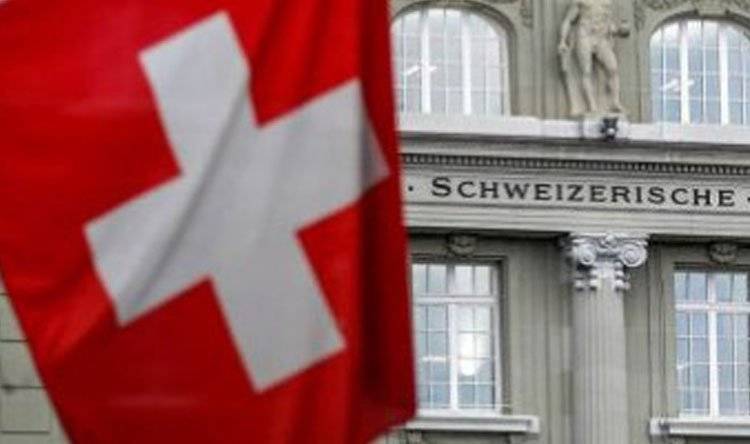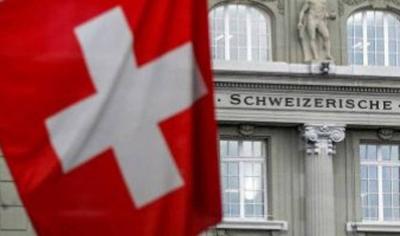The step announced following the maritime demarcation agreement between Lebanon and Israel, alongside the American and French openness towards the presidency, sparked "concern" among certain parties involved in Lebanon's affairs, without clarification of the reasons or an announcement of a later date. The Swiss embassy announced the postponement of the "Lebanese dinner" scheduled to take place on Tuesday (today) at the residence of the Swiss ambassador, which was "intended to enhance the exchange of ideas among various Lebanese political actors." In an attempt to curb speculation, the statement clarified the nature and dimensions of the invitation, stating, "Over the past two months, and in cooperation with the Humanitarian Dialogue Center based in Switzerland, Switzerland has been in contact with all Lebanese and regional political actors, as well as international ones, to prepare for consultative discussions, not a dialogue conference." The invitation was framed within the context of "Swiss traditions" of "offering good offices when requested," indicating that the proposed discussions were a result of prior consultations with all Lebanese, regional, and international political spectrums, while fully respecting the Taif Agreement and the Lebanese constitution.
Beyond the postponement announcement, the embassy attempted to address various rumors regarding the invitation and the invitees, asserting: "The names circulated in the media do not include the actual invitees; nonetheless, the dinner has been postponed to a later date." Despite being an informal invitation, the statement was issued by the embassy, confirming that Switzerland's Foreign Ministry was not far removed from it, even if it did not officially adopt it. It appeared that the intent was to clarify the circumstances surrounding the purpose and dimensions of the event, especially given the state of alert declared by some regarding the idea of holding a dialogue conference to bring together Lebanese factions on the eve of the end of President Michel Aoun's term. The move was portrayed as an attempted coup against the "Taif Agreement" or as a circumvention of it, suggesting that the guardianship of this agreement, in which Saudi Arabia plays a significant role, had ended, and it was now time to organize or start thinking about a new foundational conference in Lebanon to open a dialogue about what system the Lebanese want.
Egypt and Saudi Arabia were among the first to express objections or concerns regarding the idea. Caretaker Prime Minister Najib Mikati received calls emphasizing these worries and held meetings aimed at inquiring about the purpose of the dinner, the nature of the invitees, and the parties that had announced their willingness to participate. Since the announcement, various Arab and local entities have moved to contain its implications, leading to some parties retracting their confirmation of attendance after initially affirming it.
During his visits to Baabda Palace and Ain al-Tineh, Saudi Ambassador to Lebanon WalidBukhari chose to limit his discussions to reasserting the position of the "Taif Agreement" within the Lebanese formula without mentioning the maritime demarcation agreement either directly or indirectly. He preemptively tweeted about the Taif Agreement, stating, "The national reconciliation document is a binding contract to establish the foundations of the pluralistic Lebanese entity, and the alternative will not be another covenant but a dismantling of the social contract and the dissolution of the unified nation, replaced by entities that do not resemble Lebanon's message." He accompanied it with a hashtag supporting the "Taif Agreement." This served as a fatal blow to the Swiss initiative, which later faced reservations from Sunni parliamentarians regarding their participation.
Concern arose from the fact that the step was announced in the wake of the maritime demarcation agreement between Lebanon and Israel, coupled with an American and French opening towards the presidency, generating "concern" among certain parties concerned with Lebanon's affairs, even if they are not currently taking any action in this regard. Especially since this came during a period of decline in Saudi-American relations, heightening fears of any internal Lebanese dialogue not involving Arab countries that traditionally support Lebanon as primary partners.
Some claim that the "dialogue draft" or Swiss proposal was arranged under indirect French sponsorship, noting that France previously organized a conference in Saint-Cloud, and it did not see any issue with Switzerland being the chosen destination and venue, suggesting that Switzerland would be akin to the Nakoura region in negotiations between Lebanon and Israel or a geographical convergence point, especially since it has previously hosted two conferences related to Lebanon in Lausanne and Geneva. However, the conditions of yesterday do not resemble those of today, neither regionally nor internationally. Yet, these conferences and dialogues have not yielded fruitful results in the past, how can they benefit amid the severe divisions and differing opinions in Lebanon that make agreeing on a new president almost impossible? The invitation might have passed unnoticed were it not for the implications surrounding it, which amplified its significance, knowing that Switzerland and other countries are unable to offer assistance unless the moment of regional-international convergence concerning Lebanon arrives.




